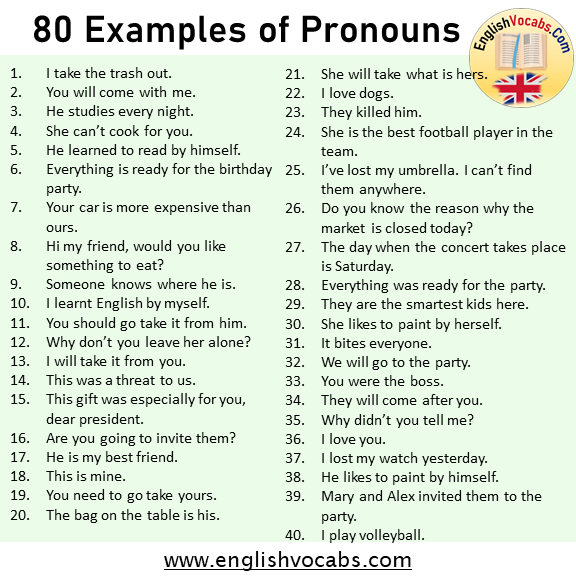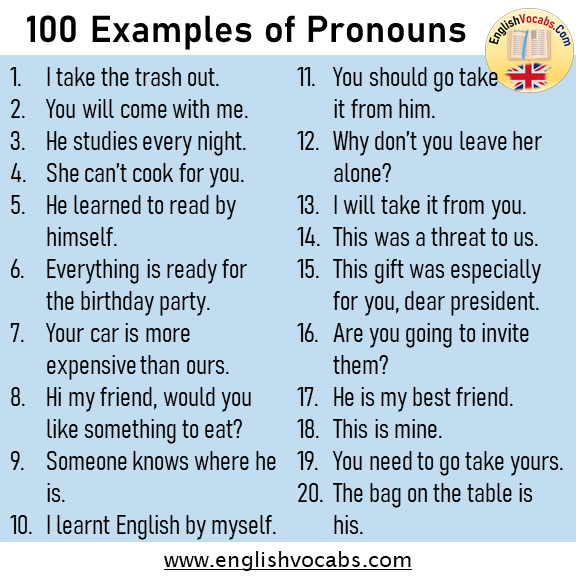Pronouns: Definition, Types of Pronouns and Example Sentences

Table of Contents
Pronouns
Pronouns are one of the most commonly used sentence building blocks in English. You need to have a good understanding of pronouns if you want to speak English like a native. If your native language’s sentence structure is very different from English, you might struggle with pronouns at the beginning. But they are not difficult to learn, and you can learn them too. Let’s see the pronouns and their examples.
Subject (Personal Pronouns)
Subject or personal pronouns are used instead of subjects, and they should take place before the verb.
- I take the trash out.
- You will come with me.
- He studies every night.
- She can’t cook for you.
- It bites everyone.
- We will go to the party.
- You were the boss.
- They will come after you.
Object Pronouns
Object pronouns are used instead of objects in the sentence. They take place after the verb.
• Why didn’t you tell me?
• I love you.
• You should go take it from him.
• Why don’t you leave her alone?
• I will take it from you.
• This was a threat to us.
• This gift was especially for you, dear president.
• Are you going to invite them?
Possessive pronouns
Possessive pronouns are used to describe belonging. There should be no other names after possessive pronouns.
• This is mine.
• You need to go take yours.
• The bag on the table is his.
• She will take what is hers.
• Your car is more expensive than ours.
• Do you want one just like theirs?
Reflexive Pronouns
Reflexive pronouns are used to strengthen the meaning of the sentence. Using a reflexive pronoun means that both subjective and the person influencing from it are the same person.
• I will get myself a coffee.
• You should take care of yourself.
• He will take it himself.
• The dog cannot walk itself.
• She does not think of anyone other than herself.
• We should not ruin ourselves.
• They are doing this for themselves.
Indefinite Pronouns
Indefinite pronouns are used when you do not know who the subject is or you do not want to say who the subject is.
• I really need someone.
• Can anybody hear me?
• No one will come after me.
• Everyone loves her.
• I want to do something.
• He would do anything.
• I hear nothing.
• You can buy everything.
Demonstrative Pronouns
Demonstratives are used instead of demonstrative adjectives, and they are used to point out something.
- Do you need this?
- Are you going to buy that?
- These are for you.
- What are those?


